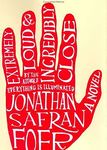The knowing child's quest in contemporary American fiction
←
→
Page content transcription
If your browser does not render page correctly, please read the page content below
Dr Yuki Namiki
E: namiki@tokyo-kasei.ac.jp T: +81-80-4209-0760 W: https://researchmap.jp/ynamiki
Sergey Nivens/Shutterstock.com
The knowing child’s quest in
contemporary American fiction
Research Objectives References
Dr Namiki examines two 21st century American Namiki, Y. (2020). It’s a wise child who knows his own father:
Bildungsromane, both featuring prepubescent boys the figure of the American family in The Last Samurai and
rediscovering their families, and their mothers in particular. Extremely Loud and Incredibly Close. Textual Practice, 34,
One is Helen Dewitt’s The Last Samurai (2000), and the 2130-2142. Available at: https://doi.org/10.1080/095023
other is Jonathan Safran Foer’s Extremely Loud and 6X.2020.1834701
Incredibly Close (2007).
Svonkin, C., & Axelrod, S. (2018). Introduction: The
Metafamily. Pacific Coast Philology, 53(2), 145-154. Available
Detail at: https://doi.org/10.5325/pacicoasphil.53.2.0145
Bio
Yuki Namiki (PhD English, City University of New Personal Response
York) is Associate Professor of English at Tokyo Kasei
University, Tokyo, Japan. Her main field of research is
What inspired you to conduct this research?
Contemporary American Literature, with a specific focus
on representation of family at the time of crisis. Native In the time of uncertainty, it seems that more and
of Tokyo, her research interest also includes catastrophe more people seek refuge in the family as a reliable
and its representation and Japanese contemporary social unit. The family can be a refuge from outside
culture. world, so to say, but at the same time it can be a source
of tilted power balance among its members, especially
between mother and children. I found this phenomenon
Funding
very interesting from a feminist point of view and tried
This work was supported by the JSPS KAKENHI under
to tackle the issue from a cultural representation angle.
Grant Number 15K16703.
Collaborators
• John Frow
• Melissa Hardie
• Vanessa Smith
• The University of Sydney, AustraliaArts & Humanities ︱ Yuki Namiki © Foto H.-P.Haack, Attribution, via Wikimedia Commons
The knowing child’s
quest in contemporary
American fiction Goethe’s Wilhelm Meister’s Apprenticeship
L
(German: Wilhelm Meisters Lehrjahre) is generally
The image of an adolescent iterary critics generally agree that featured in literature since classical recognised as the prototype Bildungsroman.
growing up and making sense universal human experience can times, literary critics cite the importance
of the world is a familiar icon be reduced to, and described in, a for its development of the German
in many cultures around the limited number of archetypal plots. From Romantic writer Goethe’s Wilhelm THE LAST SAMURAI
world. Yuki Namiki from Tokyo “rags to riches” to “the quest” and “the Meister’s Apprenticeship. Written at Set in London, The Last Samurai
Kasei University in Japan journey”, distinct narrative arcs reappear the end of the 18th century, the work is describes the relationship between an
looks at how two 21st century in the stories told in poems, novels, generally recognised as the prototype isolated and troubled single mother,
American novels use the trope films, television dramas, video-games “Bildungsroman” or “education novel”. Sibylla, and her exceptionally gifted
in line with literary tradition and comic strips around the world. child, Ludo. The story unfolds through
but also depart from it to More closely defined than the “coming seemingly random anecdotes narrated by
explore family relationships in A particular cultural icon is the theme of age” story, an important feature the American Sibylla and later by Ludo,
contemporary society. Both of the adolescent, usually male, who of the Bildungsroman theme in 19th who was conceived after a one-night
novels narrate the story of an sets out from the countryside to seek century Europe is the time-setting: the stand with a man who is unaware of
adolescent boy who is at the his fortune in the city. After a series hero’s journey of self-discovery takes be traced by literary critics to this day. from the post-World War II ideal of the Ludo’s existence.
same time innocent and mature of often negative experiences, he place in a wider national context, for Yuki Namiki from Tokyo Kasei University nuclear family, the modern ‘metafamily’
– a “knowing child” – who arrives at a state of self-realisation example Germany’s political trajectory in Japan specialises in Contemporary comprises various models as the notion To provide positive male role models,
embarks on a quest to find a
and reconciliation with the situation towards unification. The change in the American Literature. In a recent paper, of what it means to be part of a family Sibylla shows Ludo reruns of the
lost father.
from which he was originally trying hero’s inner world therefore parallels she examines two Japanese warlord film
to escape. He returns home, having external change in his homeland. contemporary The Seven Samurai.
emerged from his novels which A particular cultural icon is the theme of She also introduces
the adolescent who sets out from the
experience as a BILDUNGSROMAN INFLUENCE feature him to classical
grown man. The influence of the Bildungsroman prepubescent literature, including
Though the
spread across Europe to
America and the rest of the
boys
rediscovering
countryside to seek his fortune in the city. the Homeric epic The
Odyssey. The film
storyline has world, and continues to their families: provides Ludo with
Helen Dewitt’s The Last Samurai (2000), has been reconfigured by different different concepts of what it means to be
and Jonathan Safran Foer’s Extremely groups of people, for example same-sex male and the epic poem inspires his own
Loud and Incredibly Close (2007). couples, groups of homeless people, quest to track down his biological father.
and people of different ethnic and
Dr Namiki considers how Dewitt’s and religious backgrounds. Ludo finds his father but does not tell
Safran Foer’s novels explore their heroes’ him he is his son, because Ludo regards
relationship with an absent paternal Dr Namiki argues that The Last Samurai him as unworthy. As a result, Ludo sets
figure but situate their growth within and Extremely Loud and Incredibly out to find seven other candidates for a
maternal relationships. Dr Namiki also Close should be regarded as important father figure, each of whom he judges
considers how the novels explore the American Bildungsromane and that they by their qualities rather than their genes.
character of an adolescent who is an “portray aspects of the ‘metafamily’ of He finally chooses Yamamoto, who
innocent child but at the same time the mother and child”. She explains: recognises what Ludo is seeking and
mature – a “knowing child”. “As both stories position the family at agrees, as Dr Namiki explains, “to fill the
the centre of emotion while focusing on void in his family”.
Dr Namiki’s paper also adds to the the boy-hero’s quest, examining their
growing body of literary criticism which similarities and differences can serve as EXTREMELY LOUD AND
considers how the concept of family is an important starting point in discussing INCREDIBLY CLOSE
understood in modern life and how it is family figures in contemporary Set in post-9/11 New York City,
portrayed in contemporary fiction. Far American literature.” Extremely Loud and Incredibly Close
researchoutreach.org researchoutreach.orgAdam”. The concept was developed How is the concept of family understood in modern
life? The modern ‘metafamily’ encompasses different
by the literary critic R.W.B. Lewis in the groups of people, such as same-sex couples and
1950s to describe young heroes, who, people of different ethnic and religious backgrounds.
like the Biblical Adam – and America
itself – grow up unburdened by a past
and have to fashion their own identity
as they discover the world and make
sense of their place within it.
REDEFINING MOTHERHOOD
It is not just the heroes in The Last
Samurai and Extremely Loud and
Incredibly Close who differ from the
Bildungsroman norm. While mothers
in the genre are historically shadowy
figures who stay in the background,
Dr Namiki argues that the mothers in
these 21st century interpretations have
significant new roles.
Oskar also learns that his mother set One of the qualities that lead Ludo to
the trail for him to help him come to choose Yamamoto as his father figure
terms with his father’s death. As Dr is Yamamoto’s understanding of the
Namiki explains, the mother “restores strong emotional bond Ludo has with
Oskar to the position of the child he Sibylla. In some ways, Ludo is her
actually is”. guardian as he comes to recognise
that her constant rerunning of the film
KNOWING CHILD of The Seven Samurai is a means of
The Last Samurai and Extremely Loud escape from her own difficult life.
and Incredibly Close differ from the
traditional Bildungsroman norm in In addition, it is Oskar’s mother who
that their young heroes are no longer masterminds his quest to find his father
“innocents”. Instead, Dr Namiki and ultimately restores balance to their
locates both Ludo and Oskar in the Jonathan Safran Foer’s Extremely Loud and newly shaped family unit. She does
Helen Dewitt’s The Last Samurai follows a single tradition of the “knowing child”. The Incredibly Close describes young Oskar’s quest this by helping him to see the bigger
mother and her son Ludo, who tries to find his to learn more about his father’s death.
father.
concept was coined in 1998 by Anne picture as well as the emotional detail
Higonnet, an art historian who studies quest – what literary critics refer to that, as Dr Namiki explains, is “too loud
tells the story of the hypersensitive the depiction of children in visual as “sentiment analysis” or finding and too close for his sensibilities”.
Oskar, who lives alone with his mother culture. Dr Namiki explains: “Marking “emotion in text”.
after his father was killed in the terrorist a departure from the romantic idea FAMILY RECONFIGURED
attack on the World Trade Centre. of the ‘innocent child’, the term Dr Namiki argues: “Equipped with Dr Namiki argues that the family unit in
illustrates the presence of children the keen mind, yet innocence and contemporary America is redefined in
Unable to make sense of his father’s ‘with body’, as subjects that actively powerlessness of children, they are The Last Samurai and Extremely Loud
loss, Oskar struggles with the void that trespass on, and are agents of change thrown into a world lacking a reliable and Incredibly Close. Both are city
has also been created in his world. in the adult realm.” foundation in both a broader social novels which depict fragmented lives in
By chance he discovers a key that sense and in the characters’ personal anxious times and both offer a “child-
may have belonged to his father and Set in our troubled, contemporary environment. Given this void, the centric vision of family and childhood”
embarks on a quest that leads him to times, both novels tell how Ludo knowing child needs to construct a as their heroes “project their inner
understand more about his father’s and Oskar try to make sense of their new relationship with the world.” worlds onto the outer world”.
sudden departure from the family. environment and find father figures.
Both also rely on narratives from In addition, Dr Namiki locates Ludo By exploring “possible forms of family”
Various clues present themselves in fictional or real people to guide and Oskar’s stories within an older and positioning such exploration
the form of encounters Oskar has with their feelings and help them in their literary trope – that of the “American as an essential part of the heroes’
different people. Each helps him to quests to find lost fathers, the novels
piece fragments of information and explore “new familial modes in their
emotion together to form a pattern. Both stories position the family at the relations with the maternal”. Dr Namiki
This helps Oskar accept his loss and concludes: “The family is reconfigured
realise that the pattern remains, like his centre of emotion while focusing on the as an asylum for the mother-child
father’s and his own lives, even though
it can only be seen from a distance. boy-hero’s quest. relationship, with fatherhood being
recognised as an empty space.”
researchoutreach.org researchoutreach.orgThe public outreach magazine for the research community
researchoutreach.org
Partnership enquiries: simon@researchoutreach.orgYou can also read



























































